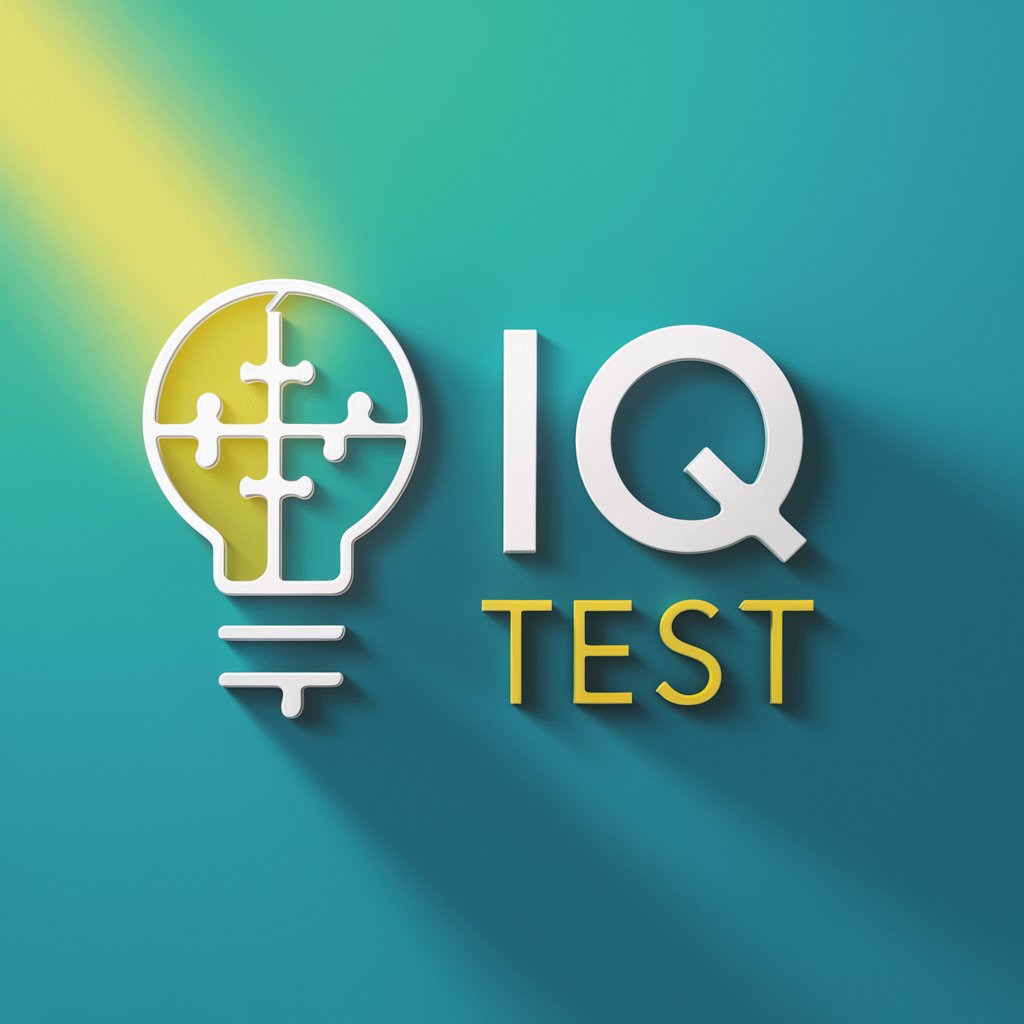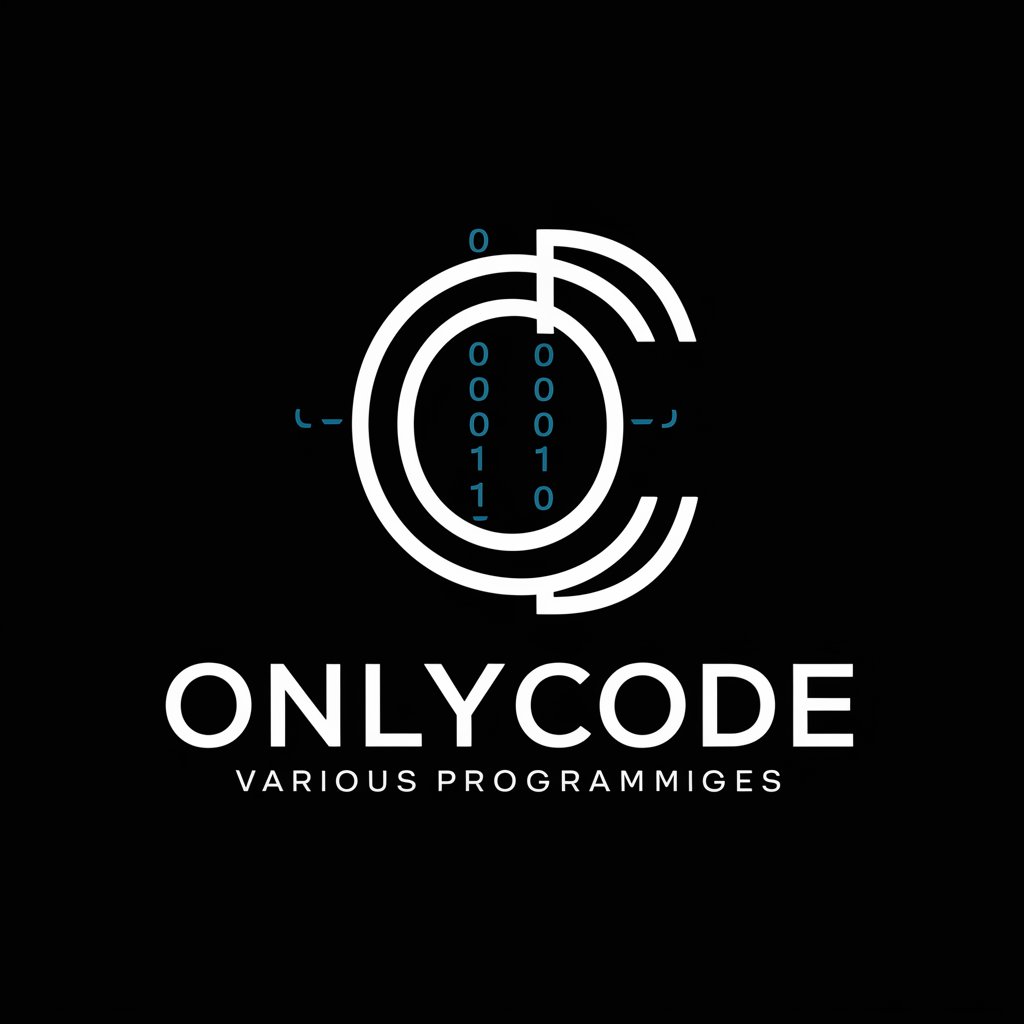IQ Test - Cognitive Skill Assessment

Welcome to IQ Test, where your mind meets its match!
Sharpen Your Mind with AI-Powered IQ Testing
What is the next number in the sequence...
Identify the pattern in the following shapes...
Solve the following mathematical problem...
Which shape does not belong in the group...
Get Embed Code
Introduction to IQ Test
The IQ Test is designed to assess cognitive abilities and problem-solving skills in a fun, engaging, and accessible manner. It includes a series of 10 questions that vary in type—such as logical reasoning, pattern recognition, mathematical problems, and spatial reasoning—to ensure a comprehensive evaluation of the user's intellectual capabilities. The test is carefully balanced in terms of difficulty to cater to a wide range of abilities, avoiding highly specialized knowledge or culturally specific questions to maintain fairness. An example scenario where the IQ Test shines is when a user seeks an informal self-assessment of their cognitive skills. For instance, a user might encounter a question asking them to identify the next number in a sequence, testing their pattern recognition and logical reasoning abilities. Powered by ChatGPT-4o。

Main Functions of the IQ Test
Cognitive Abilities Assessment
Example
A question may ask the user to solve a puzzle that requires spatial reasoning, such as visualizing the rotation of a 3D object.
Scenario
This function is particularly useful for individuals looking to challenge their problem-solving skills and assess their ability to think critically.
Problem-Solving Skills Evaluation
Example
Users might face a scenario where they have to apply logical reasoning to determine the missing piece in a series of patterns.
Scenario
This can help users identify areas of strength and improvement in their logical and analytical thinking, useful for personal development.
Entertainment and Engagement
Example
The test includes varying question types to keep the assessment dynamic and engaging, preventing monotony and stimulating intellectual curiosity.
Scenario
Ideal for users looking for a mentally stimulating activity that is both fun and challenging.
Self-Assessment Tool
Example
After completing the test, users receive a score that gives them insight into their cognitive abilities, along with correct answers for self-evaluation.
Scenario
Useful for individuals curious about their cognitive skill levels or preparing for formal cognitive assessments.
Ideal Users of IQ Test Services
General Enthusiasts
Individuals with a curiosity about their cognitive abilities and those seeking a fun and engaging way to challenge themselves intellectually. They benefit from the test's ability to provide a broad assessment of their problem-solving skills and cognitive strengths.
Students
Students can use the IQ Test to prepare for exams or assessments that require logical reasoning, pattern recognition, or spatial reasoning skills. It serves as a supplementary tool to enhance their academic and problem-solving abilities.
Professionals
Professionals looking to assess or improve their cognitive abilities for career development, especially in fields that demand strong analytical and problem-solving skills. The test offers them an opportunity to identify areas for improvement and track their progress over time.
Educators and Psychologists
While not a substitute for professional assessment tools, educators and psychologists might use the IQ Test as a casual, preliminary tool for identifying cognitive strengths and weaknesses in their students or clients, facilitating further tailored educational or therapeutic interventions.

How to Use the IQ Test Tool
1
Access the platform for a complimentary trial without the need for registration or ChatGPT Plus at yeschat.ai.
2
Choose the 'IQ Test' option from the main menu to start your assessment.
3
Follow the on-screen instructions to answer all questions within the recommended time of 20 minutes.
4
Submit your answers to receive immediate feedback on your performance, including correct answers and explanations.
5
Review your results and explore suggested resources for further learning or retake the test to measure improvement.
Try other advanced and practical GPTs
Comics Storyteller
Craft Raw, Dystopian Marvel Tales

That Day _another story_
Relive History with AI-Powered Adventures

Beaver Builder
Elevate WordPress Design with AI

Film Finder
Discover Cinematic Gems with AI

Mom's Comforter
AI-powered empathy for every mom.

Pitch Co-Pilot
Empower Your Ideas with AI-Powered Planning

VidGenius
Unleash Your Creativity with AI

onlyCode v1.0
Empowering Your Code with AI

Functional Software Analyst
Empowering your software project lifecycle with AI

UX UI Webpage Generator
Empowering design with AI innovation

Expert Pari Sportif
AI-powered Betting Intelligence

ddsakura 的部落格文章推薦助手
Curated Insights at Your Fingertips

Frequently Asked Questions About the IQ Test
What types of questions are included in the IQ Test?
The test comprises a diverse set of questions including logical reasoning, pattern recognition, mathematical problems, and spatial reasoning to assess a wide range of cognitive abilities.
How is the IQ Test scored?
Each correct answer earns you one point. The total score is then provided at the end of the test, which can be compared to a scoring guide to determine your IQ range and classification.
Can I use the IQ Test for professional evaluation?
While the test is designed to be engaging and informative, it's intended for entertainment and self-assessment purposes only and should not be considered a professional evaluation.
How can I improve my score on the IQ Test?
Improvement comes with practice. Reviewing explanations for the questions you answered incorrectly and engaging in activities that challenge your cognitive skills can help improve your score.
Is there a limit to how many times I can take the test?
No, there is no limit. You are encouraged to retake the test as many times as you'd like to track your progress or for continuous intellectual stimulation.
